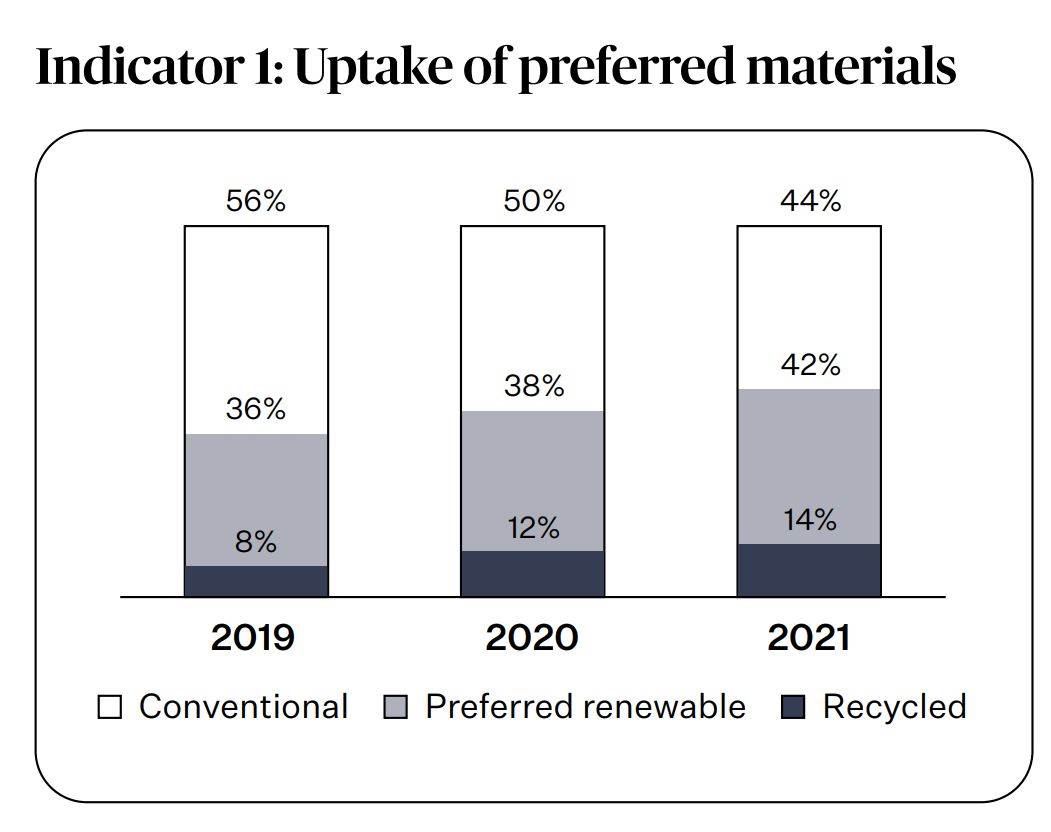Textile Exchange: Change not happening fast enough to reach goals

US non-profit Textile Exchange has published its annual Material Change Insights Report, looking at the progress made by 424 companies that submitted data through Textile Exchange’s Materials Benchmark for 2021.
It provides insights on materials uptake, as well as alignment with climate and nature goals and the transition to a circular economy.
It noted the uptake of ‘preferred materials’ - fibre and materials with improved social or environmental impacts - continues to rise, now representing 56% of materials used by participating companies.
Recycled materials grew to 14% of all materials used, with 4% of recycled content coming from post-consumer textile sources.
Circular business models continue to develop, with 73% of companies trying this route and rental being the most popular solution.
However, the report also called for an end to subsidising fossil-based energy and agriculture, and instead find ways to incentivise the scaling of regenerative and circular systems.
Liesl Truscott, director of insights and accountability at Textile Exchange, said: “On a positive note, there is plenty of evidence to suggest that companies are thinking, strategising, and building capacity to enable material change inside their companies. And while there is evidence of progress in some of the indicators above, change is not happening fast enough, nor systemically enough, to achieve the Climate+ target of a 45% reduction in greenhouse gas emissions.
“This lack of holistic change is both due to the time it takes to adapt existing business models, and the urgent need for external enablers to help drive the transformational change needed in the industry. That transformation will be driven by both ‘carrots’ and ‘sticks’, in the form of policy, finance, and investment opportunities and/or requirements. There’s no getting anywhere without a just transition that brings everybody into the new model. It’s not going to be easy.”
In the Index, 54 companies reached a Level 4 (Leading) status, indicating leadership from embedding strategy, expansion, and growth in use of preferred materials, alignment with the global goals and actioning circularity agendas. Among these were adidas, Asics, Deckers, Icebreaker, Nike, Norrøna Sport, SmartWool, Timberland and Patagonia.
Thirty-seven manufacturers are called pioneers for piloting the Material Change Index. These include Interloop, Isko and Lenzing and Sapphire Textile Mills.
The Materials Benchmark also tracks the progress of participants that have signed up to Textile Exchange’s 2025 Sustainable Cotton Challenge and 2025 Recycled Polyester Challenge. Results show that 73% of all cotton sourced by 2025 Sustainable Cotton Challenge participants in 2021 came from programmes and initiatives recognized by the challenge. Meanwhile, 27% of Recycled Polyester Challenge participants were already using over 45% recycled polyester in 2021.










